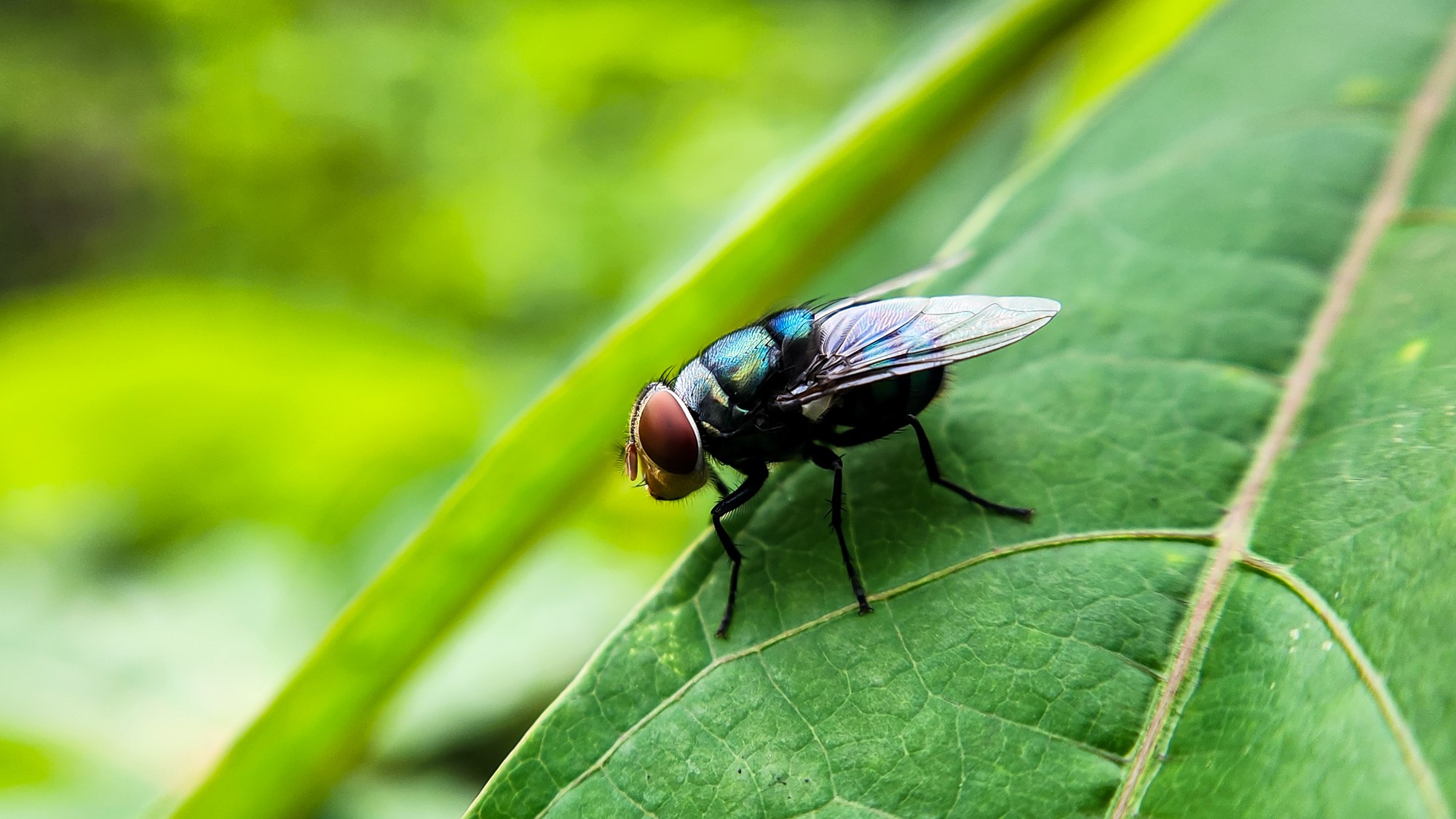The New World screwworm is making a deadly comeback
The parasite is spreading quickly


A free daily email with the biggest news stories of the day – and the best features from TheWeek.com
You are now subscribed
Your newsletter sign-up was successful
A flesh-eating parasite is spreading throughout Mexico and rapidly moving northward. This has led to the USDA's suspension of cattle, horse and bison imports from Mexico to the U.S. And without intervention, the New World screwworm (NWS) will propagate further, affecting livestock, wildlife and potentially even humans.
How bad is New World screwworm?
NWS is a deadly parasitic infection that can "kill a full-grown cow within one to two weeks," said NPR. When affected, the fly's larvae will "burrow into a wound or mucus membranes of animals and rarely humans." The resulting "maggots feast on the flesh and blood of their host with tiny mouth hooks."
"Certain drugs to treat screwworm infection are not licensed in the U.S., having been unnecessary for half a century." Agriculture Secretary Brooke Rollins' suspension will be reviewed on a month-to-month basis until the parasite is contained.
The Week
Escape your echo chamber. Get the facts behind the news, plus analysis from multiple perspectives.

Sign up for The Week's Free Newsletters
From our morning news briefing to a weekly Good News Newsletter, get the best of The Week delivered directly to your inbox.
From our morning news briefing to a weekly Good News Newsletter, get the best of The Week delivered directly to your inbox.
"This is not about politics or punishment of Mexico; rather, it's about food and animal safety," said Rollins in the press release. "The protection of our animals and safety of our nation's food supply is a national security issue of the utmost importance."
NWS will likely "propel beef prices, which are already sky-high because of drought, even higher," said The Atlantic. The cattle industry "will have to adapt quickly to a new normal."
Has this happened before?
NWS is not a new parasite, but it's a surprise that it's having a resurgence. The U.S. and Mexico were "able to eradicate the New World screwworm in the 1960s and '70s by releasing hundreds of millions of sterile adult flies that would mate with the females, ultimately preventing them from laying viable eggs," said NPR.
In 2006, an invisible barrier in Panama "consisted of planes releasing millions of sterile screwworms to rain down over the Darién Gap every week," said The Atlantic. This effectively kept the parasite away from the U.S. and Mexico.
A free daily email with the biggest news stories of the day – and the best features from TheWeek.com
However, in 2022, the barrier was breached, and cases started to rise across Central America and work their way northward, spreading most rapidly in 2024. While the exact reason for the breach is unknown, experts attribute it to the Covid-19 pandemic causing "supply-chain snarls at the fly factory in Panama" and disrupting "regular cattle inspections that might have set off the alarm bells earlier," said The Atlantic.
To push the NWS population back down, the U.S. is "investing $21 million to renovate an existing fruit fly production facility in Metapa, Mexico" that will "produce 60 million to 100 million additional sterile NWS flies weekly to push the population farther south," said the USDA.
The U.S. cattle industry is "unprepared for the screwworm's return," said The Atlantic. "We were so successful," said a U.S. official in Central America to The Atlantic, "that literally people forgot."
Devika Rao has worked as a staff writer at The Week since 2022, covering science, the environment, climate and business. She previously worked as a policy associate for a nonprofit organization advocating for environmental action from a business perspective.
-
 Antonia Romeo and Whitehall’s women problem
Antonia Romeo and Whitehall’s women problemThe Explainer Before her appointment as cabinet secretary, commentators said hostile briefings and vetting concerns were evidence of ‘sexist, misogynistic culture’ in No. 10
-
 Local elections 2026: where are they and who is expected to win?
Local elections 2026: where are they and who is expected to win?The Explainer Labour is braced for heavy losses and U-turn on postponing some council elections hasn’t helped the party’s prospects
-
 6 of the world’s most accessible destinations
6 of the world’s most accessible destinationsThe Week Recommends Experience all of Berlin, Singapore and Sydney
-
 ‘Zero trimester’ influencers believe a healthy pregnancy is a choice
‘Zero trimester’ influencers believe a healthy pregnancy is a choiceThe Explainer Is prepping during the preconception period the answer for hopeful couples?
-
 High Court action over Cape Verde tourist deaths
High Court action over Cape Verde tourist deathsThe Explainer Holidaymakers sue Tui after gastric illness outbreaks linked to six British deaths
-
 A Nipah virus outbreak in India has brought back Covid-era surveillance
A Nipah virus outbreak in India has brought back Covid-era surveillanceUnder the radar The disease can spread through animals and humans
-
 Is the US about to lose its measles elimination status?
Is the US about to lose its measles elimination status?Today's Big Question Cases are skyrocketing
-
 A real head scratcher: how scabies returned to the UK
A real head scratcher: how scabies returned to the UKThe Explainer The ‘Victorian-era’ condition is on the rise in the UK, and experts aren’t sure why
-
 Mixed nuts: RFK Jr.’s new nutrition guidelines receive uneven reviews
Mixed nuts: RFK Jr.’s new nutrition guidelines receive uneven reviewsTalking Points The guidelines emphasize red meat and full-fat dairy
-
 Trump HHS slashes advised child vaccinations
Trump HHS slashes advised child vaccinationsSpeed Read In a widely condemned move, the CDC will now recommend that children get vaccinated against 11 communicable diseases, not 17
-
 Stopping GLP-1s raises complicated questions for pregnancy
Stopping GLP-1s raises complicated questions for pregnancyThe Explainer Stopping the medication could be risky during pregnancy, but there is more to the story to be uncovered
